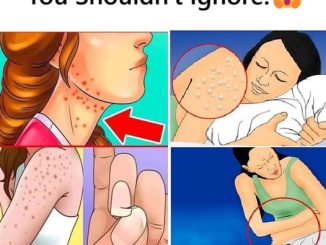
The kidneys might not get as much attention as your heart or lungs, but they are absolutely essential to keeping your body functioning properly. These two bean-shaped organs filter your blood, remove waste, balance your fluids, regulate blood pressure, and even help with red blood cell production. Sounds like a lot, right? That’s because it is.
Unfortunately, many of us unknowingly adopt daily habits that slowly damage our kidneys. And the scariest part? You often won’t feel the effects until the damage is already done. That’s why learning what these bad habits are—and how to avoid them—can protect your kidneys and overall health in the long run.
Let’s take a closer look at the top bad habits that can harm your kidneys over time.
1. Not Drinking Enough Water
One of the simplest yet most overlooked habits is not staying hydrated. Your kidneys need water to flush out toxins and waste through urine. When you’re dehydrated, your kidneys are forced to work harder, which can increase the risk of kidney stones and long-term damage.
How to fix it: Aim for 6–8 glasses of water a day, and more if you sweat a lot or exercise. If your urine is dark yellow, that’s a sign you’re not drinking enough.
2. Eating Too Much Salt
Let’s be honest—many of us love salty snacks. But excessive salt in your diet can raise your blood pressure, which puts extra strain on the kidneys. Over time, this can lead to kidney disease.
How to fix it: Limit processed foods like chips, canned soups, and frozen meals. Use herbs and spices instead of salt to flavor your food, and always check food labels for sodium content.
3. Consuming Too Much Sugar
You may not think sugar affects your kidneys, but it does—especially when it contributes to conditions like diabetes and obesity. High blood sugar levels damage the blood vessels in your kidneys, impairing their ability to filter waste.
How to fix it: Reduce sugary drinks, desserts, and processed snacks. Choose fruits, whole grains, and foods with natural sweetness instead.
4. Ignoring High Blood Pressure
High blood pressure is one of the leading causes of kidney disease. It damages the small blood vessels inside the kidneys, making it harder for them to do their job. The scary part? High blood pressure often has no obvious symptoms.
How to fix it: Get your blood pressure checked regularly, reduce salt intake, stay active, manage stress, and follow your doctor’s advice if you’re on medication.
5. Overusing Painkillers
Popping ibuprofen or other non-steroidal anti-inflammatory drugs (NSAIDs) for every little ache might seem harmless, but over time, it can damage the kidneys—especially when taken frequently or in high doses.
How to fix it: Use painkillers only when necessary and never exceed the recommended dose. If you have chronic pain, talk to your doctor about safer alternatives that are kidney-friendly.
Video : 10 BAD Daily Habits That DESTROY Your KIDNEYS
6. Drinking Too Much Alcohol
Your kidneys help filter toxins, including alcohol. When you drink heavily or frequently, your kidneys become overworked, and your blood pressure may rise, which is a double blow to kidney health.
How to fix it: Drink in moderation—no more than one drink per day for women and two for men. Even better, take regular alcohol-free days during the week to give your kidneys a break.
7. Smoking
Smoking damages blood vessels throughout the body—including those in the kidneys. It reduces blood flow, increases blood pressure, and speeds up the progression of kidney disease.
How to fix it: Quitting smoking can improve your kidney function almost immediately. Seek help from support groups, your doctor, or nicotine replacement therapies if needed.
8. Eating Too Much Protein
While protein is essential for the body, excessive consumption—especially from animal sources—can put stress on the kidneys. This is particularly risky for people who already have reduced kidney function.
How to fix it: Balance your protein intake with fruits, vegetables, and whole grains. If you’re on a high-protein diet, consider talking to a healthcare professional to monitor your kidney health.
9. Not Controlling Diabetes
If you have diabetes and don’t keep your blood sugar levels in check, your kidneys may suffer. Uncontrolled diabetes is a leading cause of chronic kidney disease because high glucose levels can damage the kidney’s filtration system.
How to fix it: Monitor your blood sugar regularly, eat a balanced diet, take medications as prescribed, and stay physically active to help manage diabetes.
10. Holding in Urine for Too Long
It might sound strange, but regularly ignoring the urge to pee can actually harm your kidneys. Holding urine for extended periods increases the risk of urinary tract infections and kidney stones, which can both lead to kidney damage if untreated.
How to fix it: Listen to your body! Don’t delay bathroom trips unnecessarily, especially if you regularly feel the urge to go.
11. Lack of Physical Activity
Sitting too much and not getting enough exercise doesn’t just affect your heart and waistline—it’s also linked to poorer kidney function. Physical inactivity can lead to obesity, high blood pressure, and diabetes, all of which harm the kidneys.
How to fix it: Aim for at least 30 minutes of moderate physical activity (like walking, cycling, or dancing) most days of the week.
12. Skipping Sleep or Sleeping Poorly
Your body uses sleep time to repair and restore all major organs, including the kidneys. Poor sleep has been linked to higher blood pressure and reduced kidney function.
How to fix it: Create a relaxing bedtime routine, avoid caffeine late in the day, and aim for 7–9 hours of sleep each night.
Video : The 5 Worst Foods for Our Kidneys! Dr. Mandell
Conclusion
Your kidneys work around the clock to keep your body balanced, clean, and healthy. But they’re also surprisingly vulnerable to lifestyle choices that we often ignore. From what you eat and drink to how active you are, every small habit adds up.
The good news? Most kidney damage is preventable. By breaking these harmful habits early and adopting healthier routines, you’re not just protecting your kidneys—you’re supporting your entire body.
So, drink more water, cut back on salt and sugar, stay active, and take care of your blood pressure. Your kidneys will thank you—quietly, of course, because they do their job silently but powerfully every single day.


